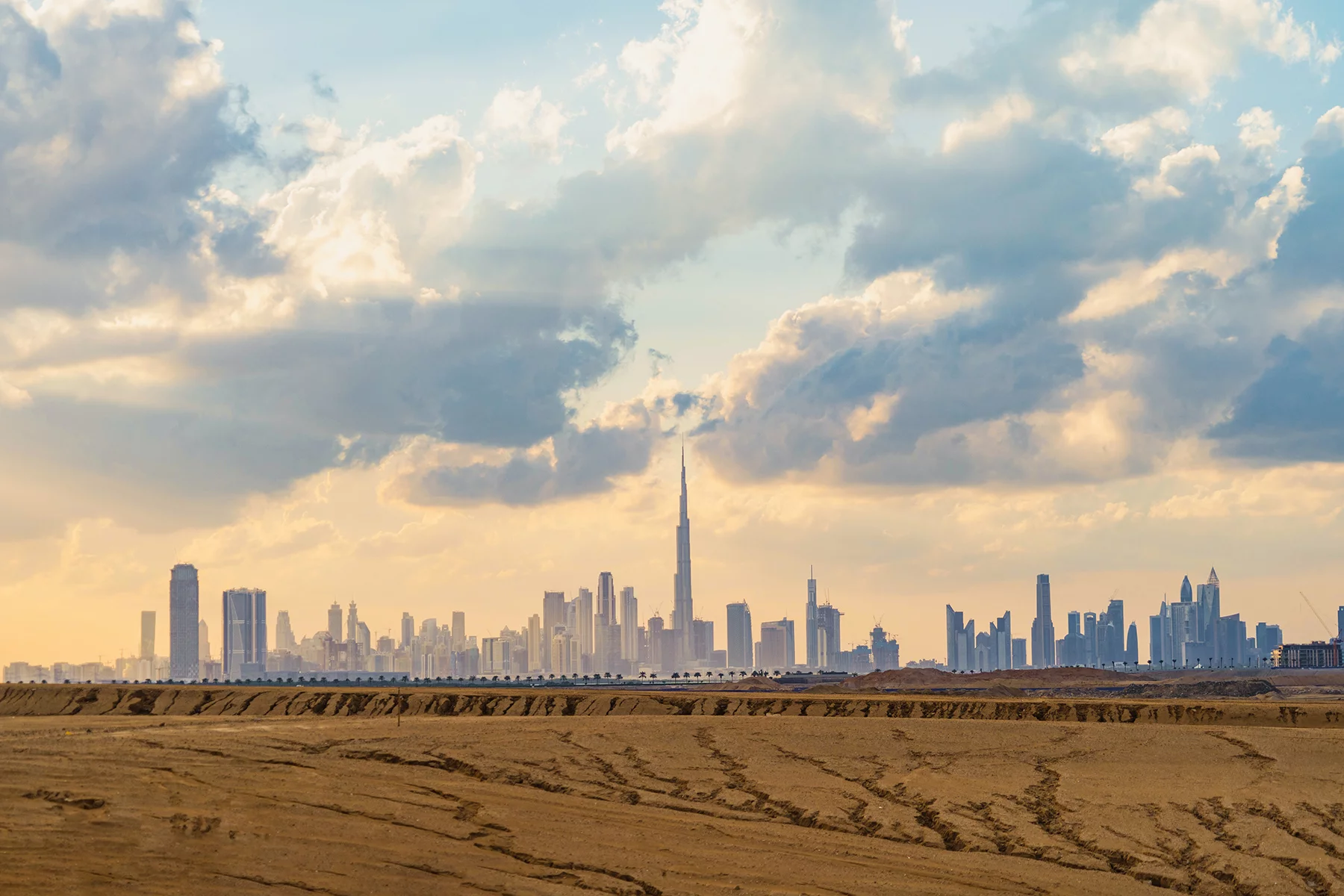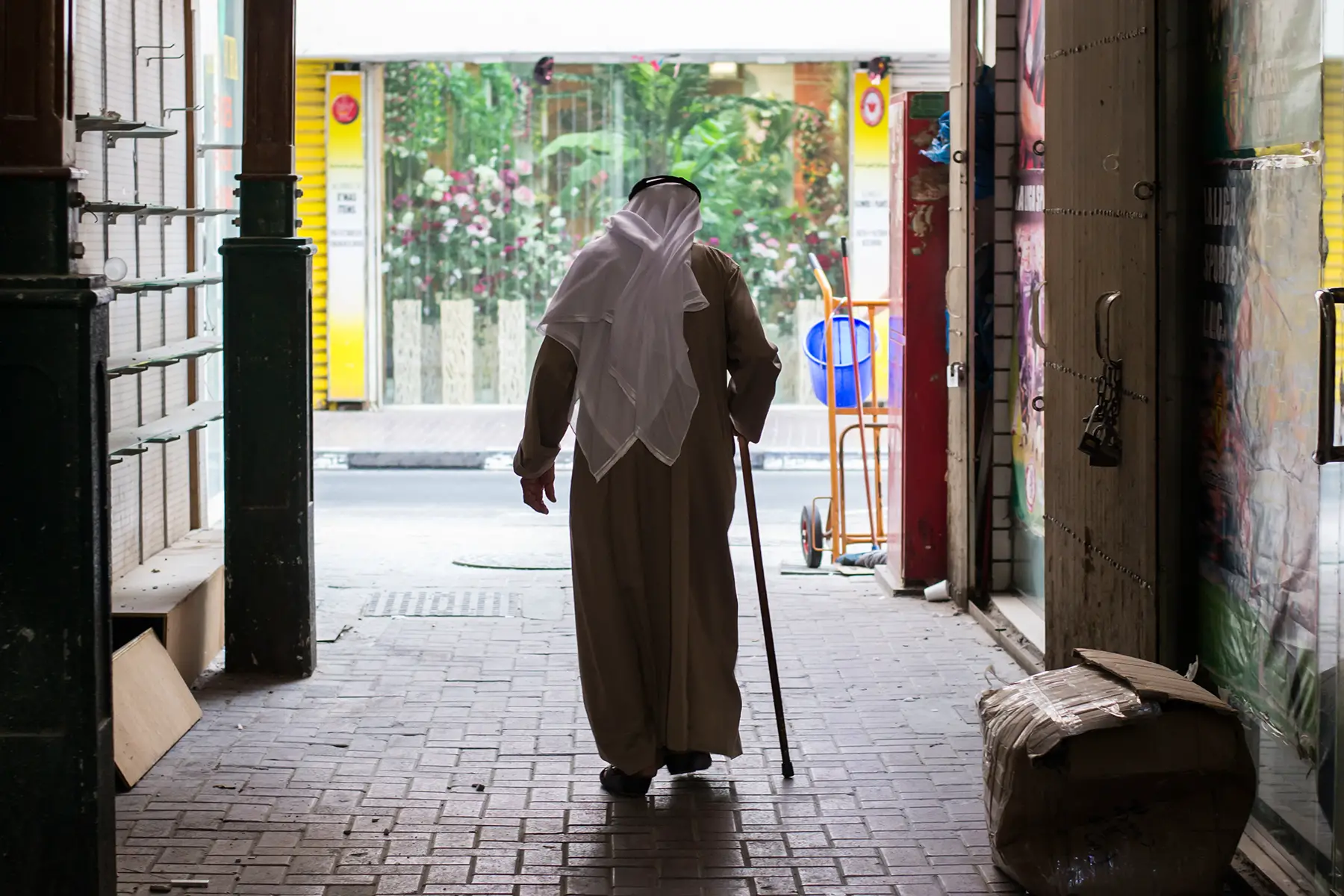The UAE offers a growing range of mental health services, particularly in major cities. Access to psychiatrists, psychologists, and counselors is widely available in urban areas, including services in English and other languages. However, without insurance, costs can be high, and the availability of long-term therapy or specialized care may be more limited than in parts of Europe or North America.
Read on to learn more about what to expect from mental health services in the UAE, including:
- How does mental healthcare work in the UAE?
- How to access mental health services in the UAE
- Insurance for mental healthcare in the UAE
- Psychologists, psychiatrists, and therapists in the UAE
- Addiction support services in the UAE
- Services dealing with eating disorders in the UAE
- Support for those with long-term or severe conditions
- Children and young people’s mental healthcare in the UAE
- Mental healthcare services for older adults living in the UAE
- Emergency support and crisis lines in the UAE
- Useful resources
APRIL International
Looking for expat-friendly health insurance in the UAE? APRIL International has a long history of providing health coverage tailored to the unique needs of the expat lifestyle, ensuring peace of mind for you and your family. Whether you’re relocating to the UAE or simply staying short-term, APRIL International has the right policy for you.
How does mental healthcare work in the UAE?
Mental healthcare in the UAE is primarily delivered through the private sector, with services regulated at the emirate level – most notably by the Dubai Health Authority (DHA) and Department of Health – Abu Dhabi (DOH).
While public mental health services exist, they are largely geared toward Emirati citizens. Expats and residents typically access care through private hospitals, clinics, and counseling centers, many of which offer services in English and other widely spoken languages.

Most people access mental health support via private insurance, often provided by their employer. Coverage for psychiatric or psychological care can vary significantly between policies, with some plans including therapy, while others cover only psychiatric consultations or exclude mental health entirely.
Patients can book appointments directly with psychologists, psychiatrists, or licensed counselors – no referral is needed. That said, long-term therapy, specialized treatments, and English-speaking providers may be limited outside major cities like Dubai and Abu Dhabi, and often come with out-of-pocket costs.
Cultural attitudes toward mental health in the UAE
While awareness of mental health is growing in the UAE, especially in urban areas, stigma around seeking support still exists, particularly in more traditional or conservative communities. Cultural expectations around privacy, family reputation, and emotional resilience can make it difficult for some individuals to talk openly about mental health concerns or pursue treatment.
However, public health campaigns and high-profile discussions – often led by local influencers, medical professionals, and government initiatives – have helped to normalize the conversation in recent years. Younger generations and expat communities are also helping to shift perceptions, creating space for more open and supportive approaches to mental wellbeing.
How to access mental health services in the UAE
Accessing mental healthcare in the UAE depends largely on whether you have private health insurance, which is the main route for expats. Expats typically rely on private clinics and hospitals for both physical and mental healthcare, where services are more accessible, multilingual, and responsive to international needs.
You don’t need a referral to see a mental health specialist, so you can contact psychologists, psychiatrists, or counselors directly. Still, it can be helpful to speak with your family doctor or general practitioner first – especially if you’re unsure where to start or need help identifying the type of care that would suit you best.
When researching providers, consider what kind of treatment you’re seeking (e.g., talk therapy, medication, trauma-focused care) and what therapist characteristics are important to you, such as language, background, or therapeutic approach. Once you’ve identified potential clinics, contact them directly to ask whether they’re accepting new patients and what the intake process involves.

Make sure to confirm whether they accept your insurance, and if they offer direct billing or require payment upfront with later reimbursement. Some providers may also offer discounts for pre-paid sessions or packages, so it’s worth asking about available options.
Insurance for mental healthcare in the UAE
As an expat, if you’re seeking mental healthcare, your insurance may or may not cover those services. Be sure to read your policy to see whether you are wholly, partly, or not at all responsible for any costs of seeking mental healthcare. Unfortunately, paying for mental healthcare out-of-pocket is pricey; sessions range from AED 500 to AED 1,000 for 50–60 minutes.
Many expats relocating to the United Arab Emirates prefer the peace of mind that comes with sorting our health insurance before arriving in the country. An international health insurance policy can ensure you have access to the best mental healthcare as soon as you land in the UAE.
Health insurance providers in the UAE
If you’re looking for private coverage in the UAE, there are a number of health insurance companies available. These include large multinational insurers that cater to the expat market, offering tailored policies that meet your needs. International health insurance providers in the UAE include:
You can compare private health insurance providers in the UAE and get free quotes on our dedicated health insurance quotes page.
Psychologists, psychiatrists, and therapists in the UAE
It’s important to know the differences between different mental health providers so that you can determine which would best suit your needs. Keep in mind that all three of these mental health providers can operate out of hospitals, clinics, and doctors’ offices. Here are some distinctions:
Psychologists
Psychologists focus on emotional, cognitive, and behavioral challenges. They provide therapy, conduct psychological assessments, and treat conditions like anxiety, depression, and learning disorders. Psychologists are not medical doctors, so they cannot prescribe medication.
Psychiatrists
Psychiatrists are medical doctors who specialize in mental health from a medical and biological perspective. They can diagnose psychiatric disorders and prescribe medication, often working with people managing more severe or complex conditions.

Therapists
Therapists (also called counselors or psychotherapists) use talk-based methods such as cognitive-behavioral therapy (CBT), trauma therapy, or play therapy to help clients work through emotional difficulties, stress, and life challenges. Their qualifications and scopes of practice vary depending on their training and licensing.
Finding English-speaking mental health specialists in the UAE
English-speaking therapists are widely available, especially in cities like Dubai and Abu Dhabi, where many providers cater to international clients. If a clinic has an English-language website, it’s a good sign they work with English-speaking professionals. You can also ask for recommendations in expat forums, parenting groups, or community networks.
- Lighthouse Arabia: Dubai-based provider that treats adults, couples, children, and adolescents
- Life Works: Dubai-based mental-health provider offering therapy, grief counseling, parenthood support, and more
- Naya Clinics: Abu-Dhabi-based provider that provides therapy, marriage counseling, life-coaching and more
- Therapy Route: Helps you find therapists and psychiatrists within a specific area. You can see their name, photo, and any specialties they work in
Addiction support services in the UAE
Since substance use and addiction are highly sensitive issues in the UAE, the country’s treatment centers in the UAE prioritize privacy and discretion. Expats can typically reach out directly to a clinic or rehabilitation facility to request an initial assessment, without the need for a referral. Services may include detox, inpatient or outpatient programs, psychological therapy, and ongoing recovery support.
Keep in mind that fees and access vary. Many services are free or heavily subsidized for Emirati nationals, but expats are usually expected to pay out of pocket or through private insurance. Always ask the clinic about treatment costs, confidentiality policies, and what support is available for international residents.

Here are a few options for those seeking help:
- The National Rehabilitation Centre (NRC) – based in Abu Dhabi
- Erada Center for Treatment and Rehabilitation – based in Dubai
- Alcoholics Anonymous UAE – meetings in Dubai, Abu Dhabi, Al Ain, Sharjah, Al Ruwais, and Ras al Khaimah
Helplines for addiction in the UAE
The following dedicated helplines are also helpful for people living with alcohol and substance addictions:
- Al-Anon Family Group – UAE – 0551188532
- ACA Dubai (Adult Children of Alcoholics) – 0504572564
- Narcotics Anonymous – UAE – 0501106898 (women’s helpline) & 0501310055 (men’s helpline)
- Alateen Family Support Groups – 0522689042
Services dealing with eating disorders in the UAE
If you or someone you know is struggling with an eating disorder in the UAE, please know that there is support. Most expats would rather go to a private clinic but there are a few public options. A referral may need to come from your primary care doctor, so be sure to check with the individual clinic about this. Also, be sure to ask if they take your insurance.
There are a number of private clinics and hospitals in the UAE. These provide expert eating disorder treatment, many on a flexible outpatient basis. Here are a few good options:
- American Center of Psychiatry and Neurology (Abu Dhabi, Dubai, and Al Ain)
- Aspris Healthcare (Dubai and Abu Dhabi)
- Camali Clinic in Dubai (Dubai)
- Psychiatry and Therapy Centre (Dubai)
- Thrive Wellbeing Center (Dubai)
Support for those with long-term or severe conditions
If you’re living with a long-term mental health condition or experiencing severe psychiatric symptoms, treatment options in the UAE are available.
Most psychiatric care is provided through outpatient clinics in private hospitals and polyclinics, where patients can receive therapy, medication management, and follow-up care. Primary care doctors typically do not manage psychiatric treatment, so you’ll need to connect directly with a specialist or ask for a referral.
Inpatient care is more limited. Al Amal Psychiatric Hospital in Dubai is the UAE’s main public facility dedicated to mental health, offering both short- and long-term treatment programs. You can call their general helpline at 800 8877 to learn more. Some private hospitals also have psychiatric wards, but availability can be limited for expats.

If you’re dealing with a chronic condition, it’s worth building a care team that includes a psychiatrist, therapist, and GP familiar with your medical history. It’s also helpful to clarify your insurance coverage early on, as not all policies cover long-term psychiatric treatment or hospitalization.
Children and young people’s mental healthcare in the UAE
Many private mental health clinics in the UAE offer dedicated child and adolescent services, often with multilingual staff and experience working with international families. Access typically doesn’t require a referral, though some clinics may request one from your pediatrician or family doctor – so it’s worth checking with the provider in advance.
Schools also play an important role. While the UAE does not offer state-wide mental health screening in schools, many international schools have trained counselors or run wellbeing programs. The level of support varies widely, so parents are encouraged to speak with school staff and stay attentive to signs their child might benefit from additional support.
For more specialized care, Al Jalila Children’s Specialty Hospital in Dubai runs a comprehensive Child and Adolescent Mental Health Center, including an Eating Disorder Unit. In Abu Dhabi, SEHA hospitals offer child psychiatric services with inpatient and outpatient options, including a daycare clinic, forensic psychiatry unit, and addiction support for adolescents.
Mental healthcare services for older adults living in the UAE
Mental health services for seniors in the UAE have expanded in recent years, particularly within public facilities. In Dubai, Al Amal Psychiatric Hospital opened the country’s first dedicated inpatient unit for older adults in 2021. This unit provides specialized psychiatric care for seniors, recognizing the unique mental health challenges that can come with aging.

In Abu Dhabi, the public health provider SEHA operates mobile psychiatric clinics and home-based care services that include geriatric mental health support. These services aim to make treatment more accessible for older adults, particularly those with mobility issues or chronic health conditions.
Additionally, Sheikh Khalifa Medical City (SKMC) houses a Behavioral Sciences Pavilion that offers geriatric psychiatry alongside other subspecialties. Together, these services reflect a growing awareness of the importance of mental healthcare for the aging population in the UAE.
Emergency support and crisis lines in the UAE
There are many different emergency numbers in the UAE, but the following numbers are directly related to mental healthcare:
- MoHAP hotline – A mental support hotline staffed by trained counselors for mental wellbeing and stress-related concerns, available from 9:00–21:00 from Sunday to Thursday at 04-5192519
- Istijaba mental health hotline (Abu Dhabi): This 24/7 free-of-charge service at 800 1717 connects callers with licensed counselors in languages including Arabic, English, Hindi, French, Malayalam, and Tamil
- National Mental Support Line (HOPE): Available 24/7 at 800 4673, this is a UAE-wide emotional and mental health support line run by the National Programme for Happiness and Wellbeing
In addition to these services, there are a number of other helplines you can access should you need them. These include national suicide and crisis lines, such as:
- 24/7 police – 999
- 24/7 ambulance – 998
- Al Amal Psychiatric Hospital – 800-11111
- Women, children, and elder abuse: For support related to domestic violence or child protection, use dedicated hotlines like 800 7283 (Ewaa) – a national service offering 24/7 confidential assistance including psychological support
Useful resources
Here are some of the prominent governmental healthcare websites in the UAE:
- Ministry of Health and Prevention (MoHAP)
- Health Authority-Abu Dhabi (HAAD)
- Dubai Health Authority (DHA)
- Thiqa program – The UAE’s public healthcare system
- Amal Counsel – A non-profit organization that offers emotional health and guidance on the values of hope, care, and gratitude
- Mental Health – An online platform that provides services, information, and resources to create awareness and end the stigma surrounding Mental Health in the UAE








